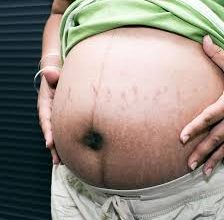
The amount of weight you can expect to lose after undergoing a gastric sleeve surgery (also known as sleeve gastrectomy) in a 3-month period can vary widely depending on several factors, including your initial weight, adherence to post-operative guidelines, diet, exercise, and individual metabolism. However, I can provide you with a general idea of what many patients experience.
On average, in the first 3 months following a gastric sleeve procedure, patients may lose about 20-30% of their excess body weight. Excess body weight is the difference between your current weight and your ideal or healthy weight. So if you start with a significant amount of excess weight, you may lose more pounds in absolute terms.
It’s important to note that the rate of weight loss tends to be highest in the first few months after surgery and typically slows down over time. Many individuals continue to lose weight for up to a year or more post-surgery, although the rate of loss becomes more gradual.
However, this is a general guideline, and individual results can vary widely. The best approach is to work closely with your healthcare team, including a registered dietitian and a surgeon, to set realistic weight loss goals and develop a personalized plan for post-surgery diet and exercise.
Additionally, gastric sleeve surgery isn’t just about weight loss; it can also have positive effects on various obesity-related health conditions like type 2 diabetes, sleep apnea, and hypertension. Your healthcare team will monitor your progress and make adjustments to your plan as needed to ensure your overall health and well-being.
Can you still lose weight 5 years after gastric sleeve?
Yes, it is possible to continue losing weight 5 years after undergoing gastric sleeve surgery, also known as sleeve gastrectomy. The initial period after surgery typically sees the most rapid weight loss, but it is not uncommon for patients to continue losing weight or maintaining their weight loss over the long term. However, the rate and extent of weight loss can vary from person to person and can depend on several factors, including:
1.Adherence to dietary and lifestyle changes: Success in maintaining or continuing weight loss after gastric sleeve surgery depends largely on following the recommended dietary and lifestyle guidelines provided by healthcare professionals. This includes eating smaller, balanced meals, avoiding high-calorie and high-sugar foods, and engaging in regular physical activity.
2.Metabolism: Each individual has a unique metabolism, which can influence the rate of weight loss and maintenance. Some people may naturally have a faster metabolism, making it easier for them to lose and maintain weight, while others may have a slower metabolism and may need to be more diligent in their efforts.
3.Genetics: Genetic factors can also play a role in weight loss surgery. Some people may have a genetic predisposition to obesity or certain eating behaviors that can affect their ability to lose weight and keep it off.
4.Hormonal changes: Changes in hormones, such as insulin, leptin, and ghrelin, can affect appetite, hunger, and the body’s response to weight loss. These hormonal changes can vary from person to person and may influence long-term weight outcomes.
More
5.Psychological factors: Emotional and psychological factors, such as stress, depression, and food cravings, can impact a person’s ability to lose and maintain weight. Addressing these factors through therapy or counseling can be important for long-term success.
6.Medical conditions: Certain medical conditions and medications can influence weight loss and may need to be managed with the guidance of a healthcare provider.
It’s essential for individuals who have undergone gastric sleeve surgery to maintain regular follow-up appointments with their healthcare team, which typically includes a surgeon, dietitian, and other specialists. These appointments can help monitor progress, provide ongoing guidance and support, and address any potential challenges or complications.
In summary, while the most significant weight loss typically occurs in the first year or two after gastric sleeve surgery, it is possible to continue losing weight or maintain weight loss over the long term through adherence to a healthy lifestyle and ongoing medical supervision. However, individual results can vary, and it’s essential to work closely with a healthcare team to achieve and sustain the desired weight goals.
Reducing the size of your stomach is a simple way to restrict the amount of food you can eat in one sitting, making you feel fuller faster. But it also serves another purpose: it reduces the amount of hunger hormones that your stomach can produce. This helps to decrease your appetite and cravings and may help to prevent the impulses that cause people to regain the weight they’ve lost.
What can you never eat again after gastric sleeve?
After undergoing a gastric sleeve surgery, there are certain dietary restrictions and guidelines that individuals are advised to follow to ensure a successful and healthy recovery. While you won’t necessarily be prohibited from eating specific foods forever, you may need to make long-term dietary adjustments to maintain your weight loss and overall health. Here are some general guidelines on what you might need to limit or avoid:
1.High-Calorie, Low-Nutrient Foods: You should avoid foods that are high in calories but low in nutrients, such as sugary snacks, candy, soda, and fried foods. These can contribute to weight gain and provide little nutritional value.
2.Carbonated Beverages: Carbonated drinks can cause discomfort and may lead to stretching of the stomach pouch created during the surgery. It’s generally recommended to avoid carbonated beverages.
3.High-Sugar Foods: Foods and beverages with high sugar content can cause rapid spikes in blood sugar levels and may lead to dumping syndrome, a condition where food moves too quickly through the digestive system, resulting in symptoms like nausea, vomiting, and diarrhea.
4.High-Fat Foods: Consuming high-fat foods can be problematic as they are calorie-dense and may lead to weight regain. Fatty foods can also be difficult to digest, causing discomfort.
5.Large Meals: After gastric sleeve surgery, your stomach size is reduced, so you’ll need to eat smaller, more frequent meals. Avoiding large meals can help prevent discomfort and ensure better weight management.
About More
The gastric sleeve is the most commonly performed weight loss surgery in the U.S. and worldwide. More than half of bariatric surgeries performed in the U.S. each year are sleeve gastrectomies. The total number of gastric sleeve operations performed each year is about 150,000 in the U.S. and 380,000 worldwide. But, only 1% of people who could benefit and would qualify for the surgery actually get it.
6.Tough or Fibrous Foods: Foods that are difficult to chew and digest. Such as tough meats or fibrous vegetables. Should be eaten with caution or avoided as they can cause digestive issues.
7.Alcohol: Alcohol can have a stronger and quicker effect on individuals who have had gastric sleeve surgery. It’s recommended to consume alcohol in moderation or avoid it altogether.
It’s important to note. That dietary recommendations can vary among individuals. And your specific post-surgery dietary plan should be discussed. With your healthcare provider or a registered dietitian. They will tailor your diet to your specific needs. Taking into consideration your health status. Weight loss goals, and any other medical conditions you may have.
Conclusion
The risks of gastric sleeve surgery are far less than the risks of having obesity and its related diseases. It also has lower complication rates than other common operations, including gallbladder removal and hip replacement. Most gastric sleeve procedures are performed by minimally invasive surgical techniques, which means less pain from incisions and faster recovery.
While you won’t be permanently banned from eating certain foods. Maintaining a healthy and balanced diet is crucial . For long-term success after gastric sleeve surgery. Following your healthcare provider’s guidance. And making informed choices about. What you eat will be key to achieving and sustaining your weight loss goals.
Gastric sleeve surgery, also called sleeve gastrectomy, is a bariatric surgery procedure. It removes a large portion of your stomach, leaving behind a narrow “sleeve.” Reducing your stomach helps restrict calories and reduce hunger signals. This surgery is offered to help people with clinically severe obesity achieve effective weight loss.





